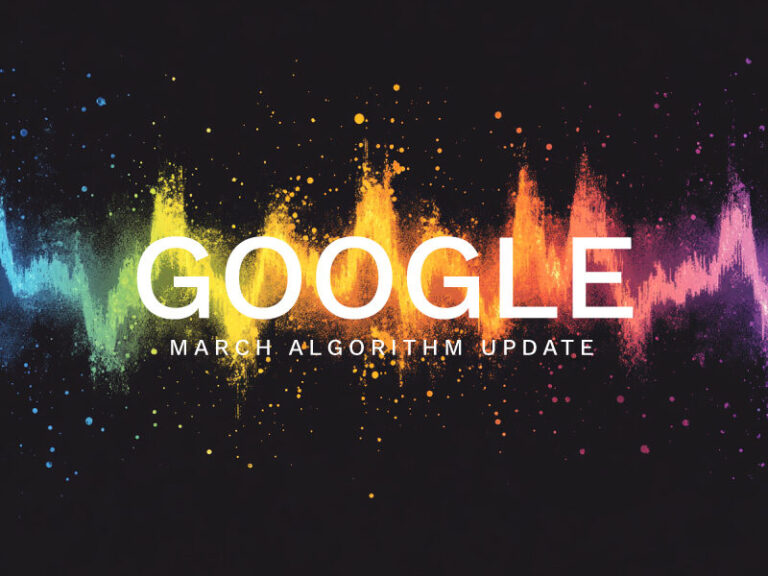
Digital marketing is undergoing a significant transformation, primarily due to the emergence of Generative Engine Optimization (GEO).
This guide is designed to clarify what GEO is and explain its crucial role in redefining content creation and SEO practices for digital marketing agencies in Sri Lanka.
Our aim is to make it easy for beginners to understand and utilize the full potential of GEO.
Here are some quick topics to help you quickly get the gist of it.
SEO is increasing the quantity and quality of traffic to your website through organic search engine results. It involves optimizing your online content so that a search engine likes to show it as a top result for searches of a particular keyword.
SEO works by making certain changes to your website design and content that make your site more attractive to search engines. It’s believed that SEO is about convincing search engines, but it’s about ensuring your website provides a great user experience and gives them the information they need.
Keywords are ideas and topics that define your content. Regarding SEO, they’re the words and phrases that searchers enter into search engines, also called “search queries.” Those are your primary keywords if you boil everything on your page — all the images, video, copy, etc. — down to simple words and phrases.
Generative Engine Optimization is a cutting-edge approach that integrates generative AI technologies with traditional SEO strategies. GEO utilizes AI to create SEO-friendly content automatically, helping websites rank higher in search results while engaging readers.
Generative AI improves SEO by automating the content creation and understanding SEO best practices. It generates articles, blog posts, and other types of content optimized for search engines right from the start, saving time and resources while enhancing content quality and relevance.
While generative AI can streamline content creation and optimization, it still needs to replace the strategic role of SEO specialists. Professionals must guide AI-generated content strategies, monitor performance, and adjust based on analytics and changing search engine algorithms.
The benefits of using GEO include the efficient production of high-quality, SEO-friendly content, the ability to scale content creation without compromising quality and enhancing a website’s search engine ranking and user engagement.
To implement GEO, select suitable AI content generation tools that fit your content needs and SEO goals. Next, train your team on these tools, focusing on integrating AI-generated content with human creativity. Monitor the performance of your content, using insights to refine your strategy continually.
The primary risks include potential issues with content originality, relevance, and alignment with your brand’s voice. It is crucial to review and edit AI-generated content to ensure it meets your standards and uses AI ethically, avoiding any practices that could deceive your audience or search engines.
The rise of generative AI is likely to make SEO more dynamic, with a greater emphasis on content quality, user engagement, and the strategic integration of AI-generated content. SEO professionals must adapt by becoming proficient in AI technologies and focusing on strategy, analysis, and the human elements of content creation that AI cannot replicate.
Generative Engine Optimization (GEO) is a cutting-edge approach that combines artificial intelligence (AI) and traditional search engine optimization techniques.
In simpler words, GEO utilizes AI technology to produce high-quality, engaging content for readers that is also optimized for search engines, such as Google.
This means the content is crafted in a way that ranks higher in search results, enabling businesses to attract more website visitors.
For a digital marketing agency in Sri Lanka, embracing GEO can be a game-changer. It allows for the creation of a wide range of content – from articles and blogs to social media posts and product descriptions – efficiently and effectively.
Quality and Quantity Balance: GEO enables the creation of large volumes of content quickly, which is crucial for maintaining an active online presence. More importantly, this content is high-quality, engaging, and tailored to the audience’s interests and needs.
Built-in SEO: GEO tools are designed with SEO in mind, automatically incorporating best practices such as keyword integration and structure optimization. This makes the content more likely to rank well on search engines.
Efficiency: Automating content creation saves time and resources, allowing agencies to focus more on strategy and client engagement.
Innovation: By adopting early, agencies can set themselves apart as leaders in digital marketing innovation in Sri Lanka and offer cutting-edge solutions to their clients.
Choosing the Right Tools: Various generative AI platforms are available. Research and select one that aligns with your agency’s needs, considering factors like ease of use, language support, and cost.
Educating Your Team: Introduce your team to these new tools. Training sessions can help content creators and SEO specialists understand how to use AI best to complement their skills.
Monitoring and Refining: Use analytics tools to track the performance of your AI-generated content. Look at metrics like page views, time spent on the site, and conversion rates to understand what works and what doesn’t.
Ethical Use: Ensure all AI-generated content is original and transparent. Being open about using AI in your content creation process is vital for maintaining trust with your audience.
Generative Engine Optimization represents both a challenge and an opportunity for beginners in the digital marketing space in Sri Lanka.
It’s a new frontier that promises to make content creation more efficient and effective but requires a willingness to learn and adapt.
By understanding and implementing GEO, digital marketing agencies in Sri Lanka can streamline their operations and provide superior value to their clients, setting a new standard for success in the digital age.
Here are five sources for further reading that concentrate on Generative Engine Optimization and its impact on digital marketing in Sri Lanka.
These articles focus on marketing and technology trends, often providing early analyses of SEO tools and strategies.
GEO: Generative Engine Optimization (OpenReview): This research paper introduces the GEO framework. It’s a bit technical but provides a foundation for understanding GEO concepts.
Generative Engine Optimization (GEO): The Future of SEO (Single Grain): This article explains what GEO is and provides an excellent high-level overview of its implications for content creators and marketers.
GEO (Generative Engine Optimization), the Future of SEO (?) (Ann Smarty on Medium): This is a more in-depth analysis of the research behind GEO, discussing what it means and how content creators might need to adapt.



We are just a call or an email away, if we can’t take you in right now we will definitely point you in the right direction. That’s our promise!
10 AM–1:30 AM
10 AM–1:30 AM
10 AM–1:30 AM
10 AM–1:30 AM
10 AM–6:00 PM
Closed
Closed
10 AM–1:30 AM
10 AM–1:30 AM
10 AM–1:30 AM
10 AM–1:30 AM
10 AM–1:30 AM
Closed
Closed
All Rights Reserved | All Wrongs Reversed | Another HypeX Project